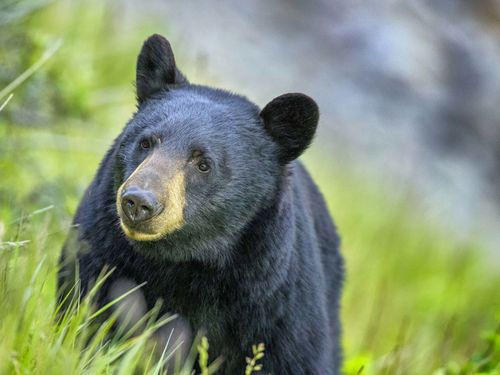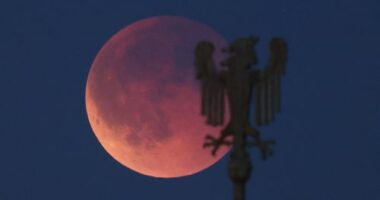Share this @internewscast.com
Florida’s inaugural bear hunt in ten years attracted over 160,000 applicants for a significantly limited number of permits, including from those opposing the hunt, seeking to minimize the kill count of bears.
The Florida Fish and Wildlife Conservation Commission plans to issue 172 bear hunt permits via random lottery for the December event, slightly reduced from the original proposal of 187 permits.
The permit allows a hunter to kill one bear in areas where the bear population is deemed large enough.

Florida has an estimated 4,000 black bears, wildlife officials say.
Applications were taken from September 12 until Monday.
FWC spokesperson Shannon Knowles mentioned in an email on Tuesday that the agency received 163,459 applications but lacks records on the number of applications for the 2015 hunt, which saw more than 300 bears killed in just two days.
“We will collect and assess data to guide future hunts, such as unused permits and hunter success rates,” Knowles stated.
Several organisations opposing the hunt, including the Sierra Club and Bear Defenders, prompted individuals to secure hunting licenses and apply for a bear permit they wouldn’t use.
“By participating in this lottery, bear lives will be saved. We won’t disclose how many until all the unused tags are returned two weeks post-hunt,” said Chuck O’Neal, president and founder of Speak Up Wekiva and Speak Up for Wildlife.
âThere are now thousands of animal advocates within FWCs database of licensed hunters who receive surveys on new hunting rules. That impact will be felt for decades.â
Opponents also sued to try to halt the hunt. A great deal of the debate has focused on whether the hunt is necessary.
There has been only one documented fatal black bear attack in Florida, the May mauling of 89-year-old Robert Markel and his daughterâs dog in a rural area.
Officials in many parts of the state say potentially dangerous human-bear contacts are increasing, which environmentalists say is largely because people are encroaching on bear habitat.
The FWC says on its website that hunting is a proven way to control wildlife populations.
This year’s hunting plan has more stringent rules than the 2015 hunt, in which permits were provided to anyone who could pay for them.
That led to a chaotic event that was shut down days early.
At least 38 female bears with cubs were killed, meaning the young bears probably died too.
This year’s hunt will be held from December 6 to December 28.
A permit costs $150 (US$100) for Florida residents and $450 for nonresidents. No cubs or females with cubs are to be killed, according to FWC staff.
Private landowners with 2,023 hectares or more could hold what the FWC calls a âbear harvest programâ on their property under the proposal.
Bears could be hunted at bait feeding stations on private property.
Also, bowhunting will be allowed under rules similar to those for deer.
In the future, the FWC foresees a bear hunt between Oct. 1 and Dec. 31, subject to more studies about the effect of hunting and the population of the animals.
In future years, hunters could use up to six dogs each to pursue bears.
Florida also allows hunting of alligators from mid-August to November, along with yearound removal of invasive pythons from private land and designated public land managed by the FWC.
The state also has an annual python challenge offering prizes and recognition for capturing pythons in the Florida Everglades.












